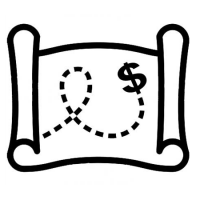I’m turning things around and showing you how to bag a bargain because somebody else’s property has become unclaimed property.
Not all unclaimed money is just dollars left in bank accounts. Sometimes it consists of valuables left in safe deposit boxes. In fact, most state governments don’t use the term “unclaimed money.” They call these lost assets “unclaimed property.” And when they run out of room to store these physical items, they auction them off and hold the proceeds for the rightful owners. We’re talking jewelry, antiques, silver, baseball cards, rare coins and more.
This presents another opportunity for YOU. You may be able to buy unclaimed valuables at auction for a fraction of their actual value. Just google “unclaimed property auction” and you will get a couple hundred thousand results. A few are physical auctions, so look for those near you. But most of these auctions are now conducted online, so you have access to them no matter where you live. A couple of examples, as I look right now: The Maryland State Comptroller is selling off jewelry, watches and paper currency. And recently the Illinois State Treasurer was selling souvenirs from the 1893 World’s Fair and gold coins from a Spanish shipwreck. Seriously!
One note of caution: crooks often try to pass their auctions off as government auctions and sell fake merchandise, so confirm that the auction is for real on the state’s own website.

